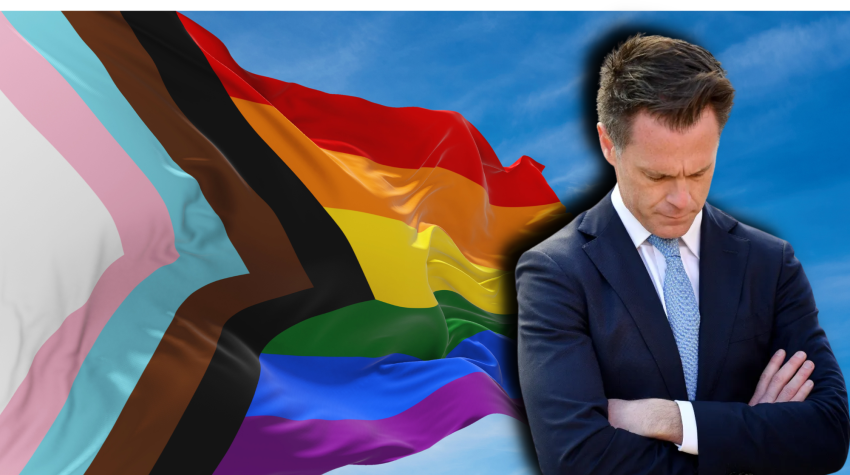
The newly established New South Wales Faith Affairs Council, established by the Chris Minns Labor government to provide advice on policy affecting faith groups, is already influencing policy decisions.
It has come to light that NSW Labor’s election promise to ban gay conversion therapy (GCT) is being watered down after pressure from the multifaith council.
GCT consists of a range of techniques to change or suppress a person’s sexual orientation or gender identity.
Independent MP Alex Greenwhich introduced the Conversion Practices Prohibition Bill to ban GCT practices in August last year, pointing out the harm and trauma induced by the treatment, which can involve pharmacological treatment.
The NSW Faith Affairs Council is attempting to exempt “religious counselling” from the ban, signalling that the body will have an impact on state policy.
In a letter posted to his Facebook page, council member Ali Al Samail, of the Australian Ahl Al Bait Islamic Centre, claimed to have secured a “committment from the Attorney General [Michael Daley] that religious counselling would be excluded from the proposed laws relating to ‘conversion therapy’”.
Destructive practices
Prior to the election, Minns did not hesitate to assert that GCT would be banned outright.
He said: “We should not have a situation where children are being told something is wrong with them and that they need to be fixed.”
Then-Premier Dominic Perrottet hesitated to make the same commitment.
GCT has already been banned in Victoria, Queensland and the ACT, and Tasmania, SA and WA are considering prohibiting it.
Greenwich’s bill is based on the 2021 Victorian model. It would “prohibit change and suppression practices” and “establish a civil response team” to ensure the ban is adhered to and deal with ongoing cases.
“It is emotionally destructive to be told that you are bad, sinful and to blame for who you are and that you need to change something intrinsic about yourself,” Greenwich said.
“It can destroy self-worth and confidence and lead to health and mental health challenges like addiction, depression, self-harm, suicidal ideation and suicide.”
The bill defines change and suppression therapies as those aimed at intentionally altering or concealing sexual orientation or gender identities that aren’t heterosexual, unless a registered health professional recommends it as part of a treatment that complies with legal standards.
Faith influencing politics
In the lead up to the 2023 state election, both Perrottet and Minns promised to create a faith advisory body in a bid to win the votes of religious communities.
The Faith Affairs Council has 19 members from various religions, including 11 Christian councillors, two Islamic councillors, two Buddhist members and one representative of Jewish, Sikh, Hindu and multi-faith communities. There 15 men on the council and four women.
Sydney Atheists president Steve Marton told 2GB in December that the representatives selected for the Council are “the most extreme elements of those religions” and they had the “strongest views” on a number of issues.
Council member Murray Norman, a Presbyterian, appeared on Christian Vision Radio in October to argue that banning GCT would be impacting on religious freedom, suggesting that Christians have a right to pressure LGBTIQ people to change their identity.
Not only is Norman a member of the Faith Affairs Council, he is also the CEO of Better Balanced Futures (BBF), a multifaith group engaged in improving access to special religious education (SRE) in schools. He is not the only member of BBF on the council.
Marton told Sydney Criminal Lawyers he had attempted to join the council as a representative of nonreligious people, which the last Census recorded at 33% of the population. His application was rejected.
This reveals that the prioritisation of the religious over that of the nonreligious is in full swing in NSW.
This isn’t the first time that Minns has reversed his position due to conservative pressure — he has done the same with drug law reform.
The watering down of the GCT ban reflects the strong influence of the Faith Affairs Council, and religious communities in general, over the state’s politics.
Minns is allowing a harmful and debunked activity to continue to appease the conservative religious right.
[Paul Gregoire writes for Sydney Criminal Lawyers where this article was first published.]